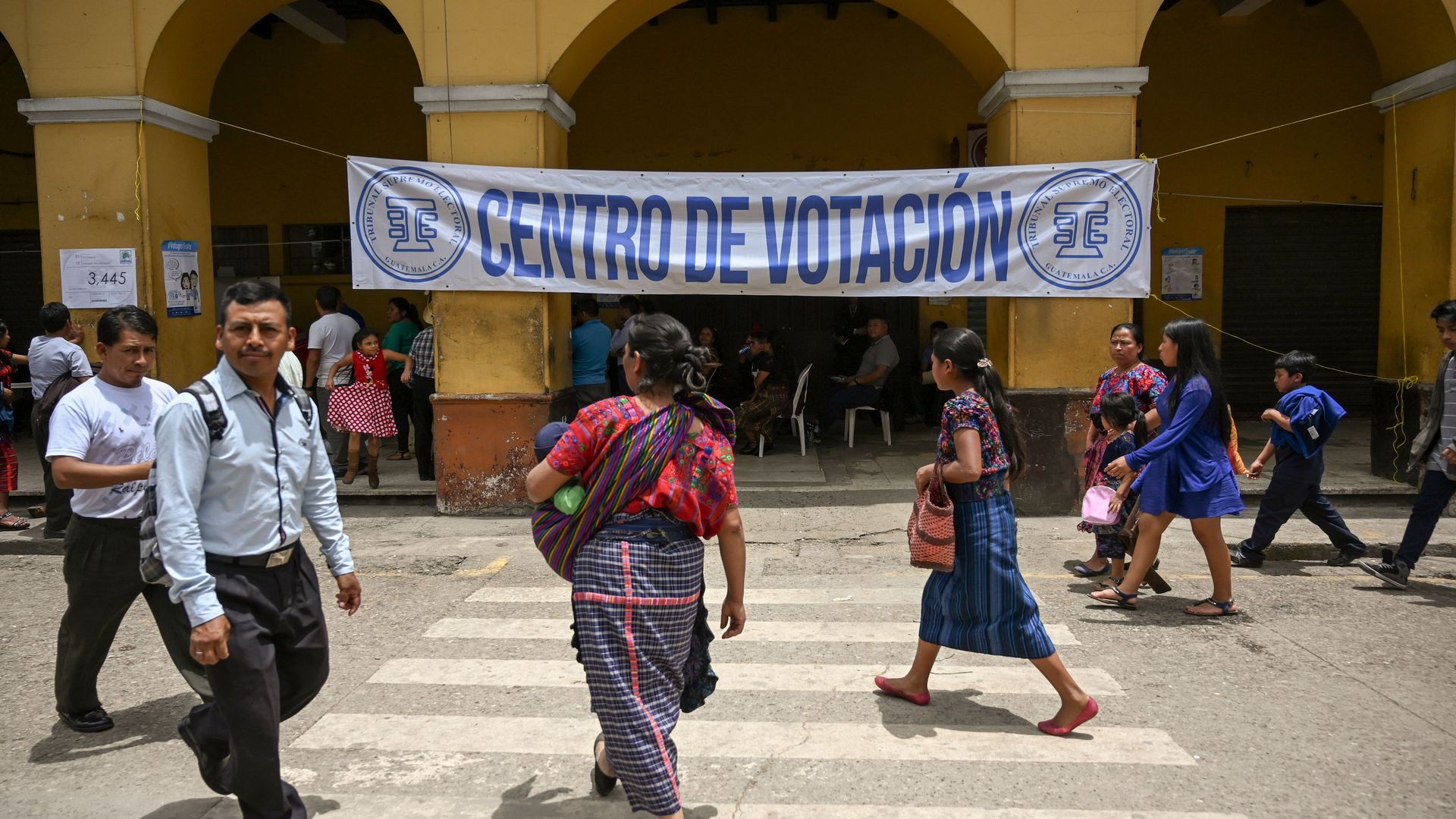Guatemala faces runoff election as emigration wave continues
Add Axios as your preferred source to
see more of our stories on Google.

A polling station in San Juan Sacatepéquez, Guatemala. Photo: Johan Ordonez/AFP/Getty Images
Guatemala's first round of presidential elections on Sunday did little to dispel the high levels of uncertainty and disillusionment plaguing the country's politics as term-limited President Jimmy Morales heads for the exit.
Why it matters: The race could provide Guatemala a much needed political reset. Morales — a political neophyte who won an upset victory in 2015 — has had a tumultuous tenure, failing to ease the social tensions driving unprecedented levels of migration from Central America’s most populous country.
Where it stands: Guatemalans are frustrated with the status quo and skeptical that the election will produce real change. Early results show a surge in voter absenteeism: Only slightly more than half of eligible voters appear to have cast ballots, down from nearly 70% in 2015 and 2011.
- Two top contenders — former attorney general Thelma Aldana and congressional leader and daughter of a former dictator Zury Ríos — were knocked out of the race due to legal challenges, setting up an August 11 runoff between former first lady and congresswoman Sandra Torres and conservative figure Alejandro Gimmattei.
- Torres, of the center-left National Unity of Hope party, won nearly 26% of the vote, far short of the 50% needed to win outright. Gimmattei, a former national prisons director and member of the right-wing “Let’s Go” party, garnered 14%.
Between the lines: While Guatemala's economic growth rate is expected to be 3.3% in 2019, those gains have not offset the security concerns and droughts in agricultural regions that have propelled migration.
- More than 42,000 Guatemalans were apprehended at the U.S.–Mexico border in 2018, prompting drastic cuts in aid by President Trump.
What to watch: Unless Guatemala's presidential candidates can renew faith in the political system and address the root causes of migration, U.S.–Guatemalan relations are likely to remain tense even after the next president is inaugurated on January 14, 2020.
- Torres has vowed to address the factors driving migration (“poverty, violence, delinquency [and] lack of political stability”), while Giammattei has proposed a “wall of prosperity” that would include investments in border regions and a plan to achieve 6% annual growth for the next 12 years.
- These dueling messages are likely to continue throughout the summer, even as both candidates agree in their opposition to the UN–backed anti-corruption body CICIG, which Morales shuttered with the Trump administration's approval.
Daniel P. Erikson is managing director at Blue Star Strategies and a senior fellow at the Penn Biden Center for Diplomacy and Global Engagement.
